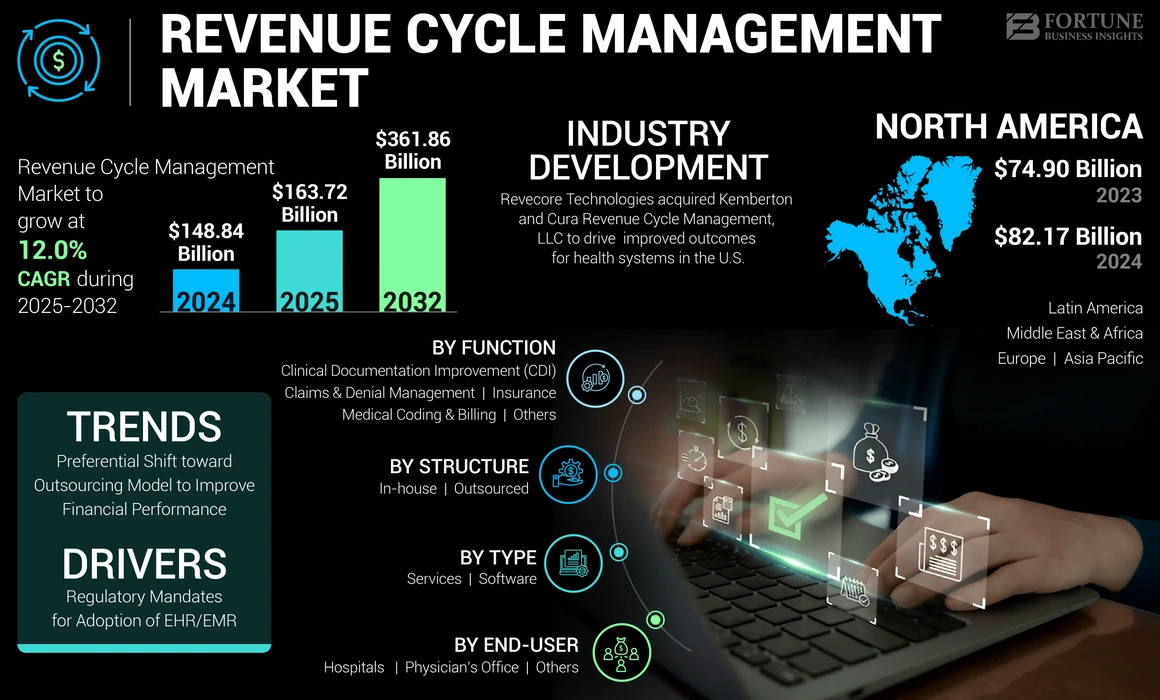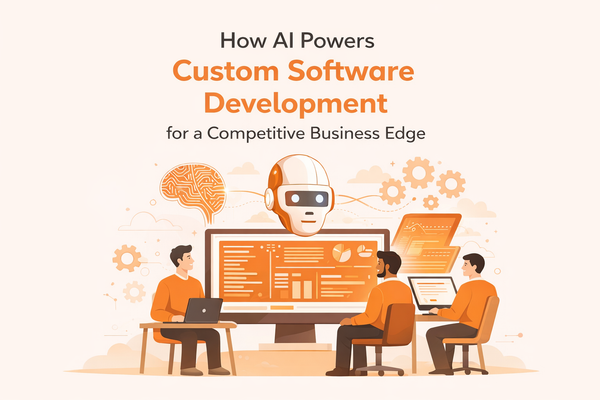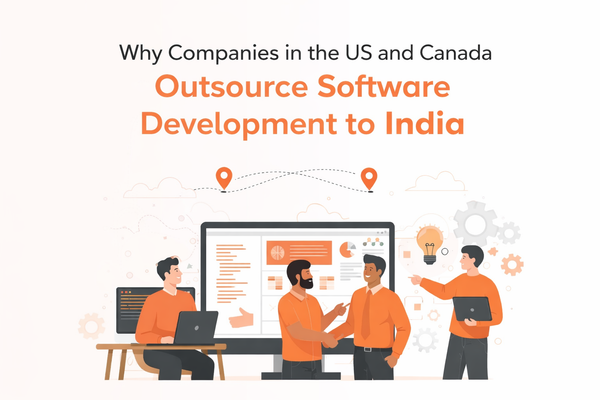In-House vs Outsourced RCM Analytics — The Smartest Move in Healthcare?

Revenue Cycle Management (RCM) analytics plays a crucial role in helping healthcare providers streamline billing, reduce claim denials, and optimise revenue generation. However, when it comes to managing RCM analytics, healthcare businesses face a critical decision: should they develop an in-house RCM analytics system or outsource it to an expert service provider?
According to the Black Book Market Survey Report 2023-2024, 70% of healthcare providers prioritise RCM system optimisation, making it the most in-demand healthcare consulting service. This change emphasises the rising need for AI-driven automation, claims accuracy improvements, and predictive analytics to boost revenue efficiency.
For In-House RCM: Hospitals and clinics are upgrading AI-driven automation, predictive analytics, and claim accuracy tools to streamline internal workflows.For Outsourced RCM: Outsourcing RCM enables healthcare facilities to leverage AI-powered analytics and automation, which leads to faster reimbursements and fewer claim denials.
In-House RCM
In-house revenue cycle management (RCM) is often known as medical billing. With in-house Revenue Cycle Management (RCM), hospitals can handle everything under one roof, from billing to clinical coordination. This seamless approach keeps teams on track, lowers claim denials, and assures speedier payments. In this structure, healthcare providers internally handle the whole patient journey process from start to finish. This ensures improved control, customisation, and compliance while decreasing reliance on third-party service providers.
Advantages of In-House RCM Analytics
With in-house RCM analytics, healthcare centres have complete control over operations since their personnel control all activities directly, resulting in more supervision and customisation.
In-house RCM keeps patient financial data within the organisation, decreasing the risk of third-party data breaches and guaranteeing compliance with HIPAA and other healthcare requirements.
Top management may monitor operations to provide rapid feedback and help staff solve difficulties.
Hospitals may optimise revenue cycles by tailoring RCM workflows to their specific patient demographics, payer mix, and operational demands.
Disadvantages of In-House RCM Analytics
An in-house RCM team requires continuous training, hiring, and compliance updates to meet evolving healthcare regulations. This adds to operational expenses and makes long-term cost management difficult.
Manually processing claims often leads to delays, increasing the risk of denied claims and disrupting cash flow. Plus, without automation, hospitals may struggle to speed up reimbursement cycles.
Over time, maintaining outdated billing software systems can lead to inefficiencies, compliance risks, and financial losses.
If the in-house team cannot resolve technical issues, external experts must be hired, leading to unplanned expenses. This dependency can make cost predictions uncertain.
Handling constant updates in insurance policies and medical codes increases the risk of billing errors, leading to claim denials and revenue loss.
Outsourced RCM Analytics: Efficiency & Cost Savings
Outsourcing RCM analytics to a third-party service provider allows healthcare organisations to reduce operational costs, improve efficiency, and scale quickly without the burden of in-house management.
According to the Black Book Market Survey Report 2023, optimising Revenue Cycle Management (RCM) is key to sustainability, financial stability, and digital transformation in healthcare. Advanced RCM solutions, including AI-driven revenue management, digital patient engagement tools, and connected care platforms, help providers streamline operations and improve financial performance.
The leading firm Boston Consulting Group (BCG) hit $963 million in healthcare consulting revenue in 2021, driving the industry's shift toward end-to-end SaaS solutions and integrated digital health systems for better efficiency and improved patient experiences.
Advantages of Outsourcing RCM Analytics
Outsourcing RCM allows healthcare providers to focus entirely on patient care instead of being burdened by administrative tasks. The experts handling revenue management, hospitals and clinics can ensure smoother operations and better patient experiences.
Accuracy improves significantly as billing errors and claims denials decrease, leading to faster reimbursements and a more stable cash flow. Advanced RCM providers leverage AI, machine learning, and cloud-based platforms to enhance efficiency and provide real-time insights for better financial decision-making.
Third-party and Outsourced RCM is also a cost-effective strategy, as maintaining an in-house team can be expensive. By reducing operational costs and improving revenue collection, healthcare providers can maximise profits while maintaining efficiency.
Leading RCM providers use AI, machine learning, and cloud-based platforms to optimise processes, deliver real-time analytics, and improve financial decision-making.
Patient and billing data are stored in the cloud in a secure and easily accessible manner, allowing for a seamless flow of information in real-time. The built-in data warehouse connects all the dots, allowing its users to fetch records in a matter of seconds with 100% accuracy and no hassle.
Transparency improves as outsourcing companies deliver structured reports, helping hospitals maintain compliance and financial accuracy.
Disadvantages of outsourced analytics
Limited control over outsourced RCM analytics makes healthcare providers depend on external teams for changes and adjustments.
The downtime and operational issues from the outsourced companies side can disrupt revenue cycles.
Hidden costs can arise if the healthcare centre doesn’t thoroughly evaluate service agreements before outsourcing.
Dependence on a third-party team may limit immediate troubleshooting and real-time decision-making.
Sensitive patient and billing information is stored and managed externally, increasing the risk of data breaches if proper security measures are not in place.
Market Insights of the Healthcare Industry

Source:fortuneBusinessinsights
- The adoption of AI & machine learning (ML) in outsourcing helps reduce claim denial errors more cost-effectively than in-house models.
- A 2022 Change Healthcare LLC report revealed that 65% of U.S. hospitals already use AI for revenue cycle management, making outsourcing even more powerful.
- Outsourced RCM offers cost savings, compliance with evolving regulations, and access to expert financial insights. In the U.S., 65% of hospitals have already adopted AI-powered RCM for faster revenue cycles (Change Healthcare, 2022).
- According to CWH Advisors, about 61% of healthcare providers plan to outsource RCM for improved financial performance.
- In 2021, 31% of U.S. healthcare providers still relied on manual claim denial processes, causing delays and errors in revenue cycle management. As a result, the adoption of Electronic Health Records (EHR) and Electronic Medical Records (EMR) is accelerating.
- In 2023, the global robotic process automation (RPA) market was valued at $13.86 billion. By 2032, the market is expected to reach $64.47 billion, driven by advancements in AI, IoT, and workflow automation.
- The U.S. RPA market is expected to reach $22.32 billion by 2032, driven by fast automation adoption in industries. North America led with a 58.01% market share in 2023, staying ahead in RPA innovation.
Which One Is Right for Your Healthcare Business?
The decision to manage RCM analytics in-house or outsource it depends on a healthcare organisation’s financial strategy, operational priorities, and long-term goals. As the global RCM market is set to reach $361.86 billion by 2032, the demand for AI-driven automation and analytics is reshaping revenue cycle management.
Outsourcing RCM is becoming the preferred choice for many healthcare providers, as it minimises administrative hassles, improves efficiency, and increases claim accuracy. Moreover, it enables hospitals to prioritise patient care while utilising cloud-based, AI-powered finance solutions that provide real-time analytics and compliance support. However, trade-offs exist, such as less direct monitoring and possibly hidden expenses.
Ultimately, the right approach is not one-size-fits-all. To select the model that best meets their financial objectives, Healthcare organisations must assess budget constraints, operational capacity, and technology readiness to choose the model that aligns most closely with their financial goals. Whether opting for in-house or outsourced RCM, integrating AI-driven solutions and cloud-based analytics will be crucial in optimising revenue cycles, reducing errors, and ensuring a seamless billing experience.




